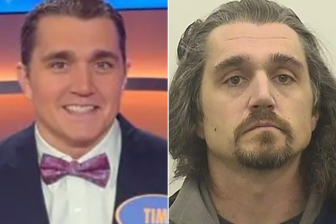Saskatchewan health minister Paul Merriman is insisting he followed the advice of the province’s top doctor during COVID-19’s fourth wave, during which the government’s own notes showed Saskatchewan had, at times, the highest rates of new COVID-19 cases and deaths in the country .
A Global News investigation showed the province’s chief medical health officer, Dr. Saqib Shahab, warned the health minister, more than a month before the province began transferring COVID-19 ICU patients to Ontario, that Saskatchewan’s acute care system would collapse unless the provincial government implemented more restrictions.
That investigation also showed the government’s internal documents stated Saskatchewan’s new case rate was higher than the United States’ rate for weeks and that, at one point, Saskatchewan’s death rate was 33 per cent higher than the province with the next-highest rate.
Read more:
Saskatchewan government emails warned of health-care collapse ahead of COVID patient transfer
Global News requested an interview with Merriman for that story. The government refused a one-on-one interview.
Global News also asked to speak to the health minister after the question period on Monday. A government spokesperson said he was not available.
He did respond to questions from the Saskatchewan NDP’s health critic Vicki Mowat during the question period, when he said the government followed Dr. Shahab’s advice.
“We made the best decisions we could with the information we had at that time,” he said.
“Dr. Shahab made recommendations and we acted on that with our proof of vaccination and our proof of negative test… with people that are within the employment of the government.”
“That’s not what (the story) showed, and this is their own correspondence,” Mowat replied.
“That’s a shameful answer,” she said.
On Sept. 17, 2021, the provincial government reinstated a mask mandate for indoor public spaces in Saskatchewan after dropping all COVID-19 restrictions the previous July.
The government also began requiring proof of vaccination or a recent negative COVID-19 to access some facilities, such as indoor dining restaurants, entertainment venues such as movie theaters and indoor dining restaurants.
That public health order did not apply to places like retail businesses, places of worship or hotels.
Global News’ investigation showed a Sept. 7 briefing notes stated “provincial vaccination coverage (two doses of 69 per cent) is insufficient to prevent acute care collapse in the absence of province-wide and targeted local measures to blunt the spread.”
Read more:
New COVID data links virus origins to animals, but findings are not definitive: WHO
An email on the same day shows that information was sent to the minister’s office and was included in a briefing.
The investigation also showed Dr. Shahab’s team repeated that warning and later, while citing hospitalizations from Oct. 13, stated the province would need to transfer patients out of the province.
Those transfers began just days later, not weeks.
In total nearly 30 people were transferred to Ontario.
Both infectious disease expert Dr. Alex Wong and epidemiologist Naheem Muhajarine previously told Global News the provincial government could have prevented more people from dying if political leaders had implemented restrictions sooner and left them in place longer.
“I don’t think there’s any question that we would have mitigated some of the death, some of the case numbers and some of the suffering that we saw,” Wong said, speaking to Global News about Shahab’s emails and the government’s handling of the pandemic.
Read more:
Saskatchewan COVID-19 researchers unable to get hospitalization data
Muhajarine told Global News the Saskatchewan government, like other provinces, learned what stopped COVID-19 from spreading in previous waves but did not implement those practices.
“At the very moment when… people who are making decisions were called to do the right thing in terms of keeping people safe and to save their lives… they did not. They did not step up to the plate and deliver,” Muhajarine said.
Both said it’s hard to know exactly how many more people died — only that it was more than it would have had with restrictions.
And both Muhajarine and Wong stated they were not blaming the government, even though they were stressed the province needed to do better during any future health crises.
Global News previously reached out to Dr. Shahab. A health ministry spokesperson said he was away until the end of the month but they would work on an interview with him when he returns.

© 2023 Global News, a division of Corus Entertainment Inc.



